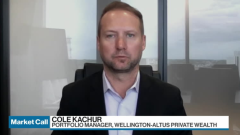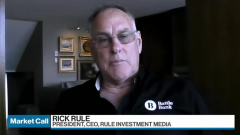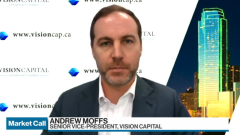May 10, 2024
Nonbank Mortgage Companies Pose Financial Stability Risks, Yellen Says
, Bloomberg News

(Bloomberg) -- Nonbank mortgage companies, which increasingly dominate the sector, pose unique risks and vulnerabilities that can weaken financial stability, according to a new Financial Stability Oversight Council report.
The FSOC on Friday released its first study of the threats introduced by nonbank mortgage firms, which have escaped the strong regulation reserved for traditional banks despite displacing them in the market. In 2022, nonbanks originated about two-thirds of mortgages and serviced most of them.
The sector’s specialized business model makes the firms vulnerable to changes in housing prices, interest rates and delinquency rates, according to the report. Nonbanks rely more than traditional lenders on the value of mortgage servicing rights, and they can have high leverage, short-term funding and operational risks, the FSOC found.
“Put simply, the vulnerabilities of nonbank mortgage companies can amplify shocks in the mortgage market and undermine financial stability, and the council has now laid this out in detail for the first time,” said Treasury Secretary Janet Yellen, who leads the FSOC.
The FSOC report made several recommendations to address the sector’s risk. One is that Congress establish an industry-financed fund to provide liquidity to failing nonbank mortgage servicers, allowing their operations to continue until servicing obligations can be transferred in an orderly fashion.
The study also suggested that Congress consider giving more authority to the Federal Housing Finance Agency and Ginnie Mae to help manage the nonbanks’ counterparty risk — and for Ginnie Mae to expand a program so it can become a more effective liquidity backstop.
The report recommended that state regulators require resolution planning by large nonbank mortgage firms.
“These firms, of course are not subject to the same financial requirements as banks, even though they pose very similar risks and sometimes bigger risks,” said Rohit Chopra, the head of the Consumer Financial Protection Bureau. “They’re not diversified, they don’t keep as much cash on hand, they borrow heavily from banks that can pull their funding at a moment’s notice.”
Footprints Expand
Biden-era regulators have long argued that oversight hasn’t keep up with nonbanks as their footprints across finance have expanded and their ties to traditional lenders have become more complex.
Nonbank lenders flooded the home-loan space in the wake of the Great Financial Crisis as the country’s biggest banks largely retreated, especially in lower down-payment loans. Last year, nonbanks including United Wholesale Mortgage LLC and Rocket Cos. dominated the top 10 mortgage lenders by originations, based on data from Inside Mortgage Finance.
Although nonbanks have taken the lead from banks, no one firm had more than 7.4% of residential mortgage originations last year, based on data from Inside Mortgage Finance.
“These vulnerabilities affect firms of all sizes, and at a time of stress many mortgage servicers are likely to experience problems,” Federal Reserve Chair Jerome Powell said during the FSOC meeting. “We’re not dealing with a couple of very large firms that individually by themselves pose a systemic threat.”
In November, US regulators laid out a path for labeling nonbanks as systemically important financial institutions.
Read More: US Lays Path for More Financial Giants to Get Fed Oversight
Friday’s report makes no specific mention of potential SIFI designations for nonbank mortgage lenders. But this tool isn’t off the table, and the report could lay the groundwork for a decision later, according to people familiar with the matter.
--With assistance from Viktoria Dendrinou.
(Updates starting in first paragraph with details of report, comments from officials.)
©2024 Bloomberg L.P.






